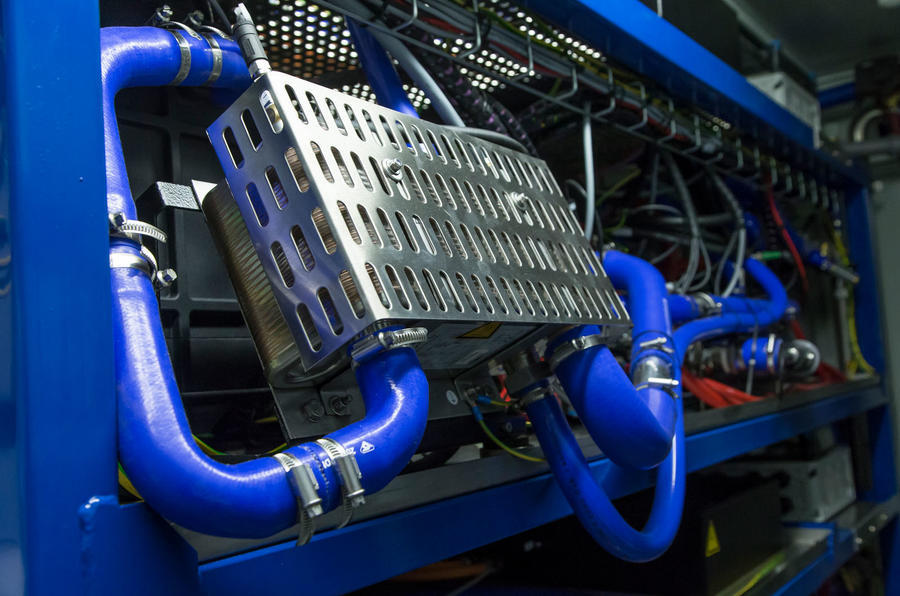Battery electric vehicles (BEVs) and hydrogen-fuelled vehicles should sit alongside one another in the future to ensure maximum energy efficiency, according to one expert.
Hugo Spowers, founder of Riversimple, which hopes to launch its first hydrogen vehicle in 2022, said: “Hydrogen and electricity as two parallel vectors gives us maximum energy efficiency. Some demands are met better by BEVs and some by hydrogen. We need both these technologies; we don’t argue over solar or wind turbines winning the energy race.”
He explained: “Electricity and hydrogen are very complementary. You can make electricity more efficiently from some sources and hydrogen more efficiently from others. For instance, producing electricity from wind is far more efficient than hydrogen. But when there’s excess wind, you can’t store electricity but you can store hydrogen. On the other hand, hydrogen is made more efficiently from biogas than electricity.
“There are pros and cons of both. Hydrogen makes more sense for vehicles with longer range or commercial vehicles, while BEVs make more sense for short-range vehicles. The efficiency advantage of having both is compounding.”
BEVs currently make up 1.4% of the new car market in the UK, whereas hydrogen take-up is negligible. The Toyota Mirai and Hyundai Nexo are the only commercialised hydrogen cars currently available, while just 18 public filling stations are in place.
However, many manufacturers are working on hydrogen-fuelled vehicles in the background, even though electrification is a more immediate priority.
Helen Lees, electric and connected boss at the PSA Group, speaking at the same Auto Futures event, added: “Ultimately, our [vehicle] platforms have been designed for hydrogen in the longer term." She added that consumer perception of hydrogen cars remains a barrier alongside infrastructure, and that PSA believes hydrogen is much better suited to light commercial vehicles.
READ MORE
PSA Group: EVs threaten the car industry
Riversimple to commence Beta testing of Rasa hydrogen car
Renault launches hydrogen range-extender in electric Kangoo and Master vans





Join the debate
Add your comment
How much longer for hydrogen and Rasa?
Riversimple and the Rasa seem to be at exactly the same stage they were at four years ago! It's easy to find articles from that time where they talk about "soon building a test fleet, and getting beta testers" - according to their website, nothing has changed as of July 2020. And frankly, it's hardly surprising. The technology behind battery cars has shot forward over the last ten years in all respects - hydrogen fuel cell for cars remains little past "experimental".As far as the Rasa goes, it manages to combine very low performance (top speed 60 mph) with inconvenience (far longer than such as a Smart car - but a cramped two seater, with *NO* luggage space whatsoever). Come to a hill with a vertical height more than about 500 feet, and it'll drain the supercapacitors, leaving you to limp up the rest of the hill at a speed to inconvenience cars towing caravans!
It's only being kept alive by grants, and has absolutely no chance of commercial success. It may have been worth a shot at the start, but the advance in battery cars has rendered it completely outdated.
Hydrogen for passenger cars has already been overtaken
If the big car makers had started making Hyrdogen cars in the 60s, when they were using fuel cells to power the Apollo progam, then perhaps we might still have them now.but they didn't, and battery technology has already got to the point where hydrogen just isn't economic now.For a clear explaination of why, go to you tube and search for "Tony Seba hydrogen"where his 5 year old video comparing battery and hydrogen is still true today.Hyrdogen might have a place on ships or heavy construction or long distance lorrys on the Oz outback, but it just doesn't make sense for small passenger cars
I'd like to mention the substance, NH3
1) It's liquid at -33°C thus far less cooling or pressure required. 2)The energy available from 1 liter, is 2 times that available from pure Hydrogen. 3)It can be burned directly - not workable for fuel-cells, however the flip side is that -- residues from burn are; 2NO and H2O, Nitric-Oxide and water in other words. 4)It's a larger molecule, thus doesn't leak through substances at quantum level like pure H does. Thus storing it is cheaper by far. Demerits; well Ammonia is slightly poiconous thus safeguards have to be made when refuelling and fuel tanks would have to have reinforced lids openable only with special tools, and fuel tanks would require reinforcing to prevent leaks in potential accidents. But compare that with - fuel easy enough to store that could technically replace all fossil fuel in every setting fossil fuel is used, while fully eliminating all emissions of Carbon.